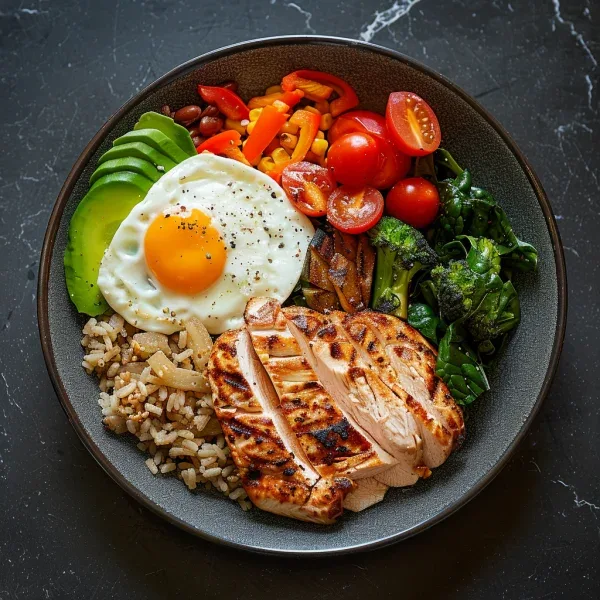By Gemma Delaney

The essence of strength and muscle development doesn’t solely lie in lifting heavier weights or running longer miles; it’s also profoundly shaped by the food you plate up post-exercise. Unleashing the wisdom of renowned nutritionist Isabelle Graham, let’s dive into the intriguing realm of post-workout nutrition for women and how it can enhance your fitness journey.
‘You aren’t building muscles in the gym,’ is an adage ripe with truth. Any exercise, regardless of whether it’s strength or endurance-based, is essentially a catabolic activity. It spikes the rates of protein breakdown and depletes glycogen reserves, especially if your workout session exceeds the usual duration or if you train in a fasted state. Hence, realizing the potential of strategic post-workout nutrition is pivotal.
Nutritious Load: What to Consume After a Workout?
The fundamental objective of your post-workout nutrition should be to enhance performance, expedite recovery, repair exercise-induced damage, and prepare your body for a tougher next session.
To be more specific, your post-workout meal should refuel your energy reserves, inhibit protein breakdown, and promote muscle building. So what exactly should you incorporate into this vital meal?
The Protein Power
Throughout your fitness journey, protein remains your loyal companion, instrumental in muscle development. It doesn’t matter if you’ve just returned from a hefty run or concluded an intense weights session – your body craves protein.
Protein triggers muscle protein synthesis rates, kickstarting the muscle-building process. If your goal is to build more toned muscles, remember that the real muscle gain is only possible when your protein synthesis rate surpasses protein breakdown.
Having protein post-workout can facilitate this process. Refueling with around 20-30g of protein in your meal or snack is considered sufficient for maximizing muscle protein synthesis.
The Carbohydrate Conundrum
Are carbohydrates crucial for your post-exercise recovery? Carbohydrates can boost insulin levels, which may aid muscle protein synthesis and recovery. However, if your protein intake is adequate, it can elevate insulin levels effectively on its own.
Carbs help to suppress muscle breakdown rates, suggesting that a combination of protein and carbs might be a better option than protein alone. Especially for high-intensity or endurance workouts, carbs can replenish glycogen stores and reduce fatigue.
If you’re planning to exercise again within the same day, quickly-absorbed carbs like a banana might be the best fit. Alternatively, you might choose slow-releasing carbs such as oats for later workouts. An easy guide is to aim for approximately 0.8g per kg bodyweight or around 30-40g.
The Fat Factor
Should fat be a part of your post-workout meal? Although fat may decelerate digestion, it doesn’t appear to impede post-exercise recovery. Some studies suggest that whole milk might be more beneficial than skimmed milk after a workout.
Optimal Hydration
Extended workout sessions demand proper post-workout hydration. While you might be sipping fluids during exercise, post-workout hydration remains essential. Electrolyte drinks can be valuable, as they provide sodium, potassium, and magnesium important for bodily functions.
Post-Workout Nutrition: When to Eat After Exercising?
Contrary to popular belief, you don’t necessarily have to consume something within the ‘golden’ 30-minute window post-workout. Several studies have demonstrated that protein synthesis remains elevated for at least 24 hours after a workout. Still, some evidence suggests that consuming protein within the first hour after exercise might lead to better strength and recovery, likely because this mitigates the catabolic effects of the stress hormone, cortisol.
The ideal timing will also depend on when you last ate before your workout. If you train fasted in the morning, eating soon after working out would likely be beneficial due to lower insulin and muscle protein synthesis levels. However, if you ate within a few hours of starting your workout, the timing becomes less critical.
Post-Workout Supplements: Are They Necessary?
While post-workout drinks and supplements are not essential, they can provide certain benefits. Some nutrients have been found to improve lean muscle mass, minimize muscle damage, accelerate recovery, and mitigate delayed onset muscle soreness (DOMS). Moreover, post-exercise shakes can be a handy option if food doesn’t seem appetizing right after training.
Nutrition is an integral part of your fitness. You might be surprised at how effective a well-crafted post-workout meal can be, fine-tuning your strength and speeding up recovery between your sweat sessions.
post-workout nutrition for women, protein after workout, carbohydrates after workout, fats after workout, best time to eat after workout, post-workout suppements
Leave a Reply